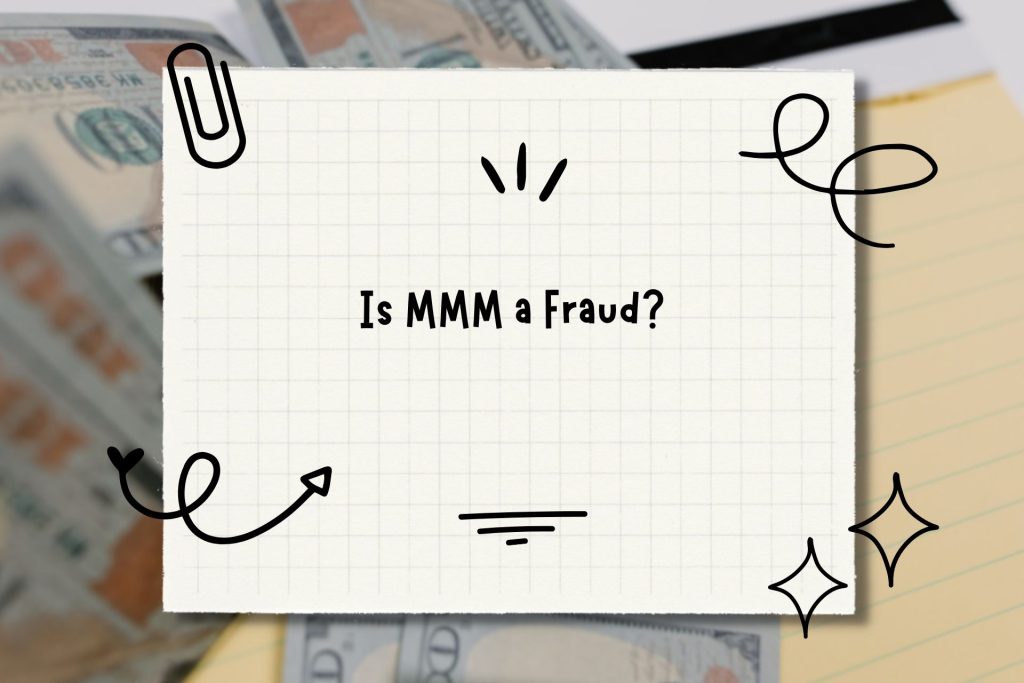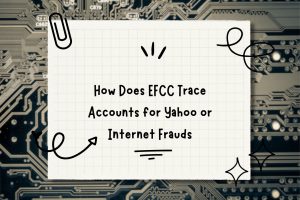If you’re reading this article, chances are you’ve heard of MMM, a global Ponzi scheme that promised its investors high returns on their investments.
However, as with any investment opportunity, it’s important to ask yourself: is MMM a fraud? The answer is not a simple one, as there are many factors to consider.
Yes, MMM is a ponzi scheme is a fraudulent investment scheme where returns are paid to earlier investors using the capital of newer investors. The scheme continues until it collapses, leaving many investors with significant losses.
MMM, founded by Sergei Mavrodi in 1989, was one of the largest Ponzi schemes in history, with millions of investors worldwide. The company promised returns of up to 1000% per year, which should have been a red flag for any potential investor.
Despite its obvious red flags, MMM continued to attract investors with its promises of high returns. However, in 1994, the scheme collapsed, leaving investors with losses of over $1.5 billion.
Mavrodi was subsequently arrested and served time in prison for his involvement in the scheme. Despite this, MMM has resurfaced in various forms over the years, with some claiming that it has reformed and is now a legitimate investment opportunity.
The Full Meaning of MMM

MMM, also known as Mavrodi Mundial Moneybox, is a global Ponzi scheme that has been the subject of controversy and scrutiny since its inception.
Let’s peel back the layers on this global Ponzi scheme, from its murky beginnings and the masterminds behind it, to its questionable business model and rapid rise to notoriety.
Get ready for a wild ride through the world of financial scandal!
Recommended articles
Origins and Founders
MMM was founded in 1989 by Sergei Mavrodi, his brother Vyacheslav Mavrodi, and Olga Melnikova. The company was initially established as a financial pyramid, which promised high returns to its investors. MMM operated in Russia, and it quickly became popular due to its aggressive marketing tactics and promises of quick wealth.
Business Model
MMM’s business model is based on a classic Ponzi scheme, where early investors are paid with the money of new investors. The company promises high returns on investments, which are paid out in a virtual currency called Mavro. MMM claims that it is a community of people helping each other, and it encourages its members to recruit new investors to join the scheme.
Growth and Expansion
MMM grew rapidly in Russia, and it expanded to other countries, including China, India, and Nigeria. The company claimed to have millions of members worldwide, and it attracted a lot of media attention. However, MMM’s success was short-lived, and the company collapsed in 1994, leaving millions of investors with losses.
In 2011, Sergei Mavrodi relaunched MMM as a global online community, using the same business model as before. The new MMM quickly gained popularity in several countries, including South Africa, Zimbabwe, and Brazil. However, regulators in many countries warned people against investing in MMM, citing its dubious business practices and the risk of losing money.
So, wrapping it all up, MMM is one of those companies that’s got tongues wagging and opinions flying left, right, and center.
On one hand, you’ve got the founders painting a picture of a warm and fuzzy community all about lending a helping hand. On the flip side, though, there’s a chorus of experts waving red flags and shouting about the potential for some serious financial fiascos.
One thing’s for sure – you’ll want to tread carefully if you’re thinking about jumping into the MMM mix.
Allegations of Fraud
MMM has faced numerous allegations of being a fraudulent scheme. These allegations have been made by various individuals, organizations, and government bodies. In this section, we will explore the different allegations of fraud that have been made against MMM.
Government Investigations
Several government bodies have investigated MMM and found it to be a fraudulent scheme. For instance, the Securities and Exchange Commission (SEC) of Nigeria issued a warning to the public in 2016, stating that MMM was a Ponzi scheme that was not registered with the commission. The Central Bank of Nigeria (CBN) also warned the public against investing in MMM, stating that it was fraudulent and that investors could lose their money.
In addition, the Chinese government investigated MMM and arrested several individuals associated with the scheme. The government accused MMM of operating a pyramid scheme and defrauding investors of millions of dollars.
Public Perception
MMM has also faced criticism from the public, with many people accusing it of being a scam. Some individuals who have invested in MMM have reported losing their money, while others have accused the scheme of being unsustainable.
Despite this, MMM has a large following, with many people believing that it is a legitimate way to make money. Some supporters of the scheme argue that it is a form of community-based financial assistance that helps people who are struggling financially.
Expert Analyses
Several financial experts have analyzed MMM and concluded that it is a fraudulent scheme. They argue that the scheme is unsustainable and that it relies on new investors joining the scheme to pay off existing investors.
In addition, experts have criticized MMM’s lack of transparency, with investors having little information about how the scheme operates. Some experts have also argued that MMM’s promise of high returns is unrealistic and that investors are likely to lose their money.
In the grand scheme of things, MMM has found itself in the hot seat, with a laundry list of fraud accusations and a whole squad of folks – from regular Joes to big-shot government types – waving big red flags about getting mixed up in it. Sure, there are still die-hard fans singing MMM’s praises, but the wise owls in the financial world are sounding the alarm loud and clear.
Their verdict? This whole shebang could be teetering on the edge of a colossal collapse, and you don’t want to be caught in the fallout.
Impact of MMM
Effect on Investors
MMM’s fraudulent activities have had a significant impact on its investors. Many individuals who invested their money in MMM lost their savings and were left in financial ruin. The scheme promised high returns on investments, which attracted many people who were looking for a quick way to make money. However, MMM was unable to sustain its operations, and investors were left with worthless vouchers.
Influence on Financial Markets
MMM’s fraudulent activities also had a negative impact on the financial markets. The scheme’s collapse led to a loss of confidence in the financial system, which resulted in a decrease in investment and a decrease in economic activity. This, in turn, had a ripple effect on other financial institutions and businesses, leading to an overall negative impact on the economy.
Regulatory Responses
Governments and regulatory bodies around the world have responded to MMM’s fraudulent activities by taking measures to protect investors and prevent similar schemes from emerging. Many countries have introduced new laws and regulations to regulate investment schemes and protect consumers from fraudulent activities. Additionally, law enforcement agencies have taken action against the individuals behind MMM, bringing them to justice for their crimes.
All in all, MMM has left its mark in a big way, sending ripples through the world of investors, financial bigwigs, and the rule-makers trying to keep it all in check. It serves as a cautionary tale for individuals who are considering investing their money in high-risk schemes and highlights the importance of regulatory oversight in protecting consumers from fraudulent activities.






